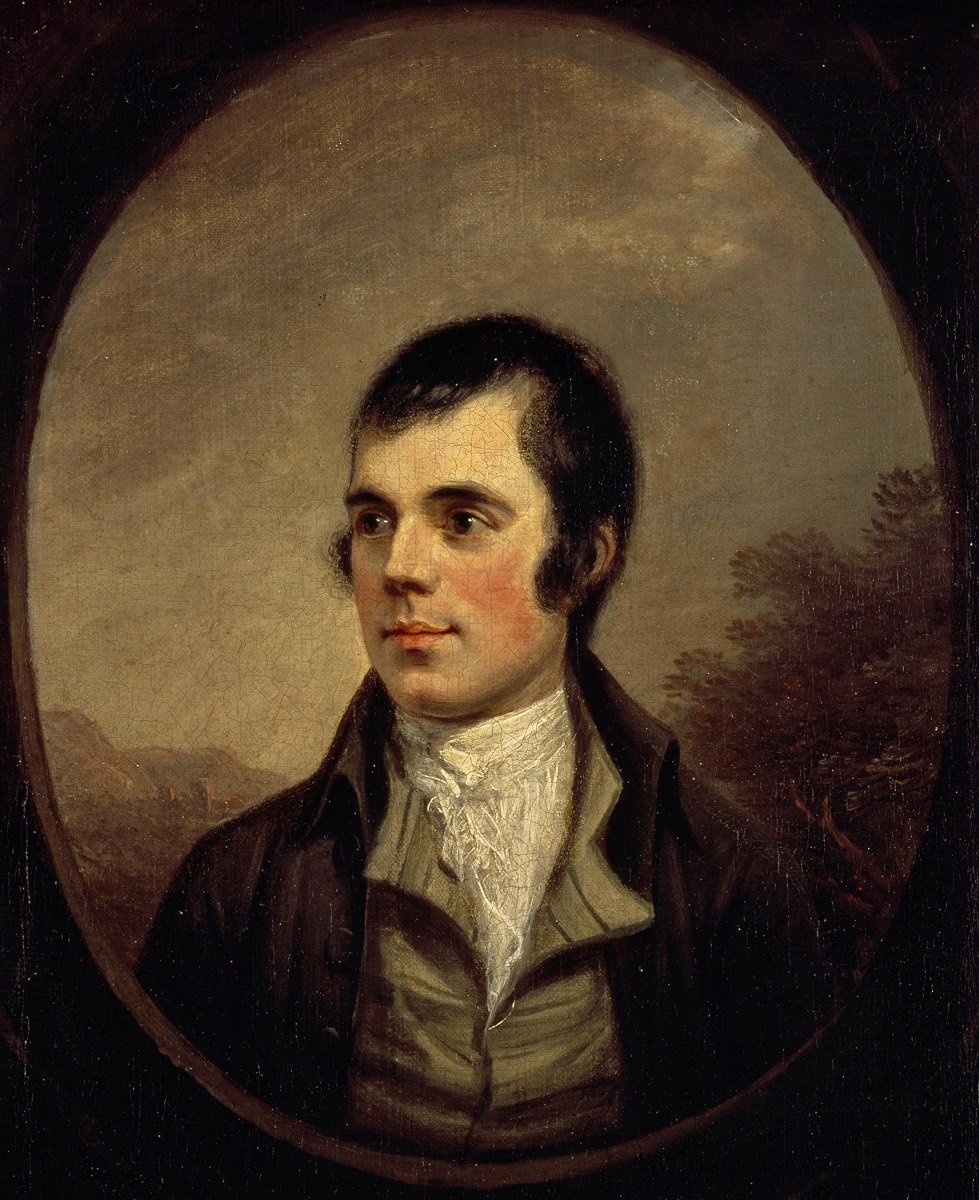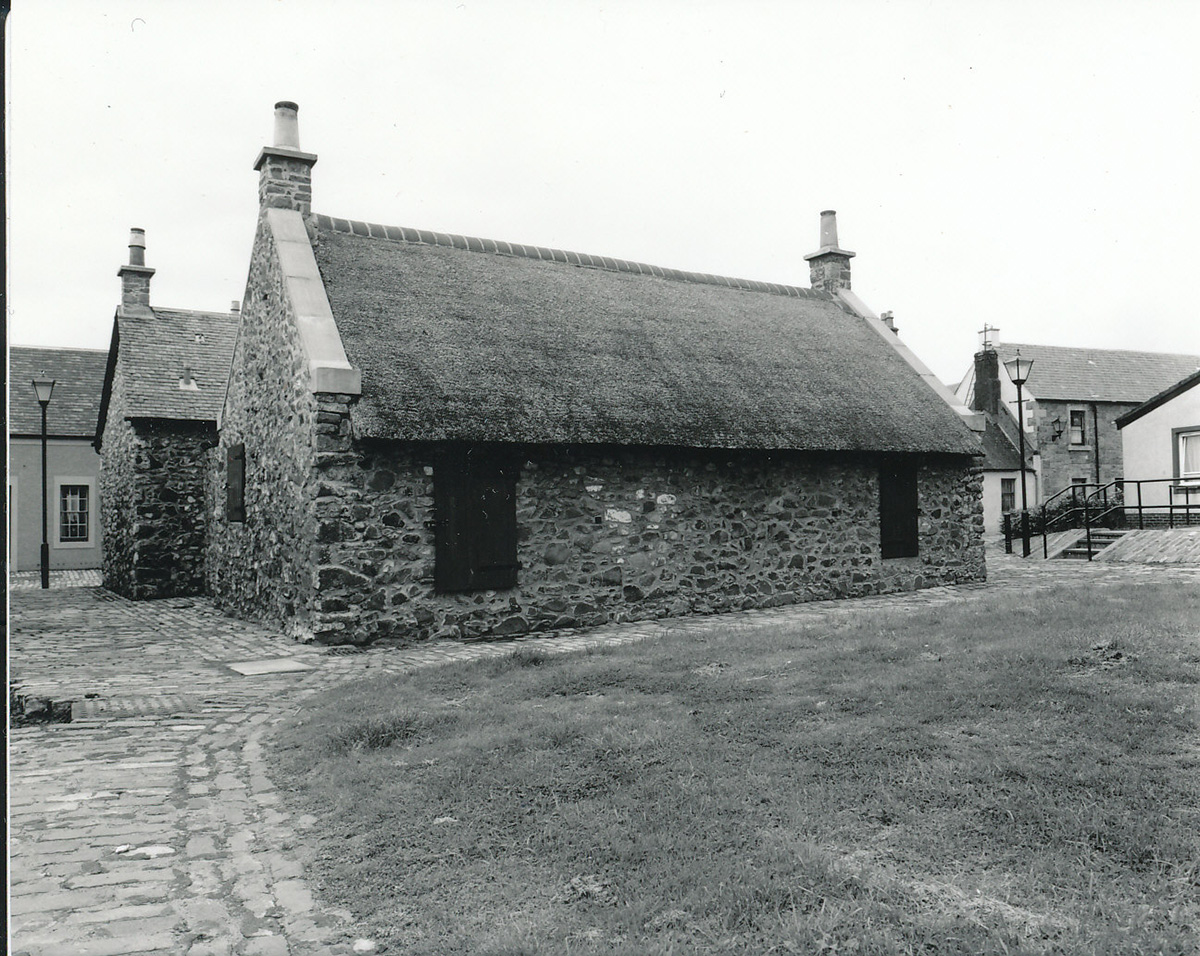
Robert Burns was born at Alloway on 25 January 1759, the first of seven children born to William Burnes and Agnes Brown. Robert and his brother Gilbert were educated by their father and by a tutor called John Murdoch who was employed by a group of farmers to teach their sons from 1765 to 1768 and again briefly in 1772. They also attended summer schools and their father believed that their education was very important. Robert grew to love reading of a wide range of literature.
The Burns family moved to Mount Oliphant in 1776 and leased a farm and then to Lochlea, Tarbolton and continued farming. Robert moved to Irvine in 1781 to learn flax dressing in order to make more money for the family farm and while staying there he found a book of poetry by a Scottish poet called Robert Fergusson in a local bookshop, which is believed to have inspired him for his future writing. He also met a sea captain named Richard Brown, who encouraged him to consider life as a poet.

The Heckling Shed in Irvine
Robert moved to Mauchline in 1784 and wrote and published his “Kilmarnock Edition” called “Poems Chiefly in the Scottish Dialect”, which was a huge success and which contains what some would consider to be his best work, including “The Jolly Beggars” and “Holy Willie’s Prayer”. He was considering moving to Jamaica until the success of this volume but he changed his mind and went to Edinburgh instead where he was treated as a celebrity and another volume of his poetry was published.
He farmed at Ellisland with his wife for a short period then moved to Dumfries in 1788 where he worked as an exciseman until his health failed and he died in 1796 aged 37.
Robert Burns is widely regarded as the national poet of Scotland and is celebrated across the globe. As well as his well known poems, such as To a Mouse, The Twa Dogs, Tam o’Shanter and To a Haggis, Burns also revised and adapted folk songs that already existed in Scotland or wrote new lyrics to accompany these old songs, such as Auld Lang Syne, A Red Red Rose and The Battle of Sherramuir, which were all set to old Scottish tunes.
Burns famously wrote in Scots, but he also wrote in English, which made his work more accessible to non-Scottish audiences. Burns’ writing was many things, it was sincere, funny, direct and spontaneous and covered themes such as love, republicanism, radicalism, inequality, sexuality, religion, death, everyday life and much more.